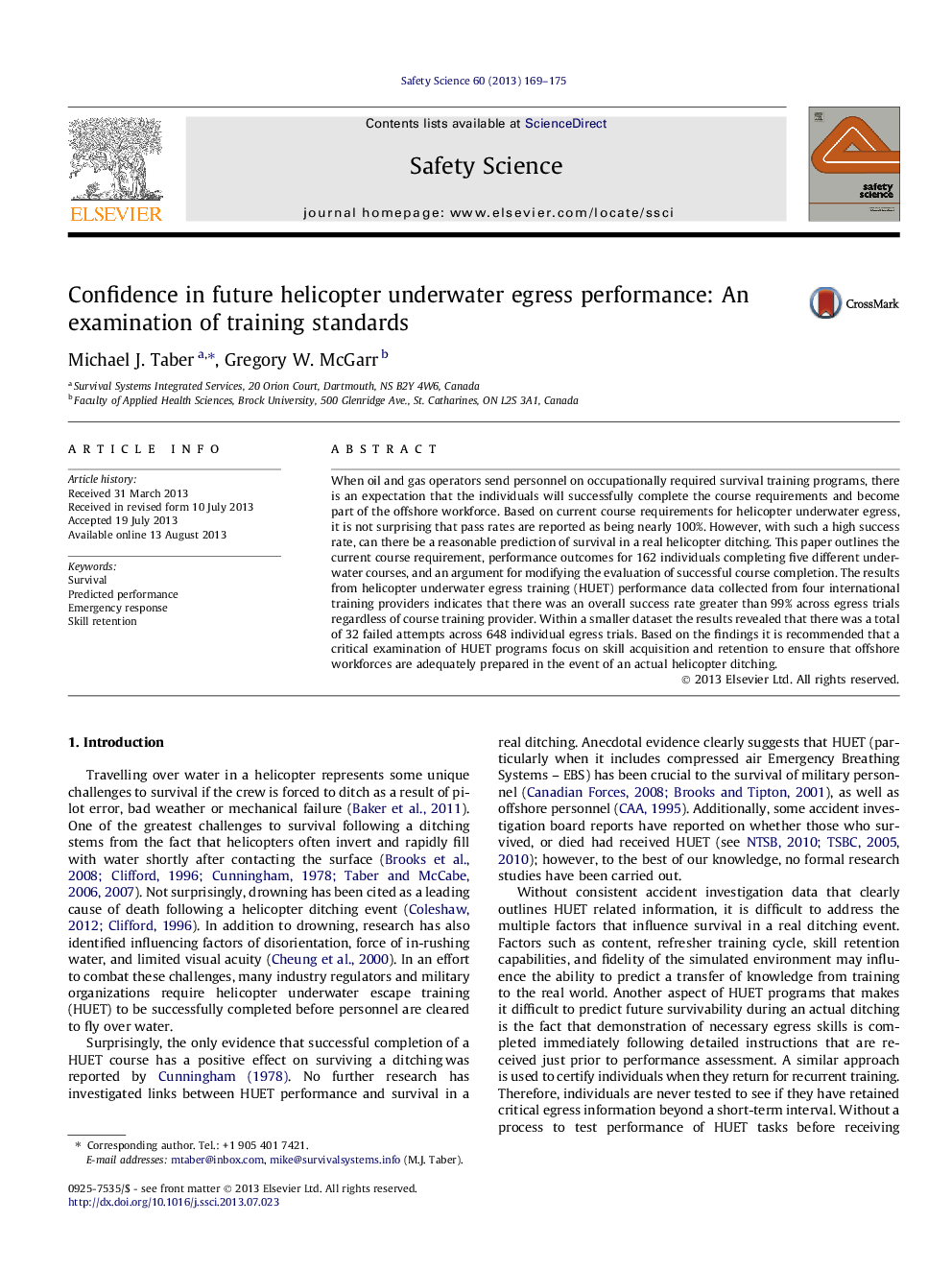| Article ID | Journal | Published Year | Pages | File Type |
|---|---|---|---|---|
| 589172 | Safety Science | 2013 | 7 Pages |
•No internationally agreed upon egress standard exists.•Training evaluation criteria does not necessarily reflect future egress performance.•A more critical analysis of underwater egress training skill acquisition and retention is needed.
When oil and gas operators send personnel on occupationally required survival training programs, there is an expectation that the individuals will successfully complete the course requirements and become part of the offshore workforce. Based on current course requirements for helicopter underwater egress, it is not surprising that pass rates are reported as being nearly 100%. However, with such a high success rate, can there be a reasonable prediction of survival in a real helicopter ditching. This paper outlines the current course requirement, performance outcomes for 162 individuals completing five different underwater courses, and an argument for modifying the evaluation of successful course completion. The results from helicopter underwater egress training (HUET) performance data collected from four international training providers indicates that there was an overall success rate greater than 99% across egress trials regardless of course training provider. Within a smaller dataset the results revealed that there was a total of 32 failed attempts across 648 individual egress trials. Based on the findings it is recommended that a critical examination of HUET programs focus on skill acquisition and retention to ensure that offshore workforces are adequately prepared in the event of an actual helicopter ditching.
